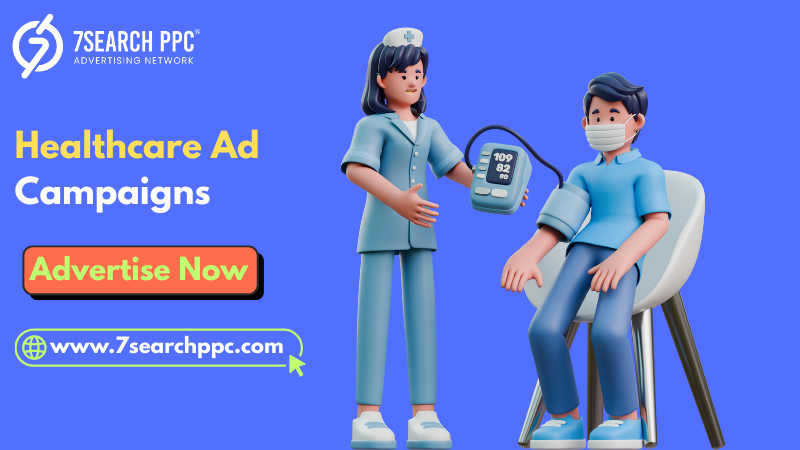Healthcare ad campaigns carry a responsibility that goes beyond typical marketing. Unlike other industries, these campaigns influence decisions that directly affect people’s health and well-being. This makes ethics a core part of designing any pharmacy or healthcare advert. When done right, an ethically designed campaign builds trust, informs people, and guides them to make better choices.
Many healthcare ads fail not because they lack creativity, but because they overlook ethical boundaries. Misleading claims, exaggerations, or fear-based messaging may bring short-term engagement but damage long-term credibility. A strong campaign balances persuasion with honesty and transparency.

Why Ethics Matter in Healthcare Ad Campaigns
People rely on healthcare advertising for guidance. A wrong message can cause confusion, unnecessary stress, or even health risks. Ethical campaigns respect the audience by providing accurate information and setting realistic expectations.
Considering ethics early in the campaign also protects your brand from legal and reputational risks. Misrepresentation or lack of clarity can lead to complaints, penalties, or a loss of trust that is hard to recover.
When you study healthcare advertising examples, you notice that campaigns with the clearest messaging and honest claims often perform better and are more shareable.
Be Accurate and Transparent
Accuracy is the foundation of ethics in healthcare advertising. Every claim about treatments, medications, or health outcomes must be backed by evidence. Avoid exaggerating benefits or downplaying side effects.
Transparency also means being clear about who is behind the campaign, what the service offers, and any limitations or conditions. A patient-friendly approach communicates openly and builds confidence in your message.
Understand the Audience
Ethical campaigns consider the audience’s perspective. People seeking healthcare information are often in vulnerable positions. Messaging should be empathetic and avoid fear-mongering.
Segmentation helps in creating responsible ads that speak directly to relevant groups. For instance, an ad about diabetes management should provide practical, safe advice without overstating urgency or risk.
Craft Responsible Messages
A well-crafted healthcare advert informs rather than pressures. Focus on benefits that are real and achievable. Use simple language that is easy to understand, avoiding medical jargon when unnecessary.
If you look at some of the best healthcare advertising, you will see that they balance clarity with engagement. They educate, reassure, and prompt action in a thoughtful way.
Visuals and Media Responsibility
Images and videos in healthcare ad campaigns have an impact beyond words. Avoid sensational visuals that exaggerate conditions or treatments. Use images that represent real-life situations and maintain dignity.
Visuals should also be culturally sensitive and inclusive. This helps in reaching diverse audiences without unintentionally causing offense or misunderstanding.
Avoid Exploiting Vulnerabilities
One of the key ethical principles is not exploiting fear or emotional vulnerability. Ads that prey on health anxieties or exaggerate risks can create unnecessary panic and mistrust.
Ethical campaigns present choices and solutions rather than scare tactics. For example, instead of saying “Without this medication, you are at serious risk,” a responsible approach would be “This medication can support your health alongside regular care.”
Protect Privacy and Data
Healthcare ad campaigns often involve collecting sensitive data. Ethical campaigns ensure privacy by following regulations and clearly informing users about data use. Consent, security, and transparency are essential.
If your pharmacy advert collects information for newsletters or promotions, make it clear how data will be stored and used. Ethical handling of data strengthens credibility and trust.
Best Healthcare Ads Follow These Principles
Looking at successful campaigns, several patterns emerge:
- They communicate honestly and clearly.
- They provide practical information.
- They respect the audience’s emotions and circumstances.
- They comply with legal and ethical standards.
These campaigns are not only effective but also maintain a positive reputation for the brand. Ethical practice is not a limitation; it enhances long-term engagement and results.
Monitoring and Reviewing Campaigns
Even after launch, ethical responsibility continues. Regularly review ad performance, feedback, and public response. Correct any misleading or unclear information immediately.
Testing messages and visuals for clarity and impact before full launch helps prevent potential ethical missteps. This is where healthcare advertising examples provide valuable insights. Learning from others’ successes and mistakes can guide your own campaign design.
Final Thoughts
Ethical considerations in healthcare ad campaigns are essential for credibility, safety, and long-term success. By focusing on accuracy, empathy, transparency, and respect, marketers can design campaigns that educate and engage without causing harm.
If you are ready to create impactful and responsible healthcare ad campaigns, you can Build Successful Healthcare Ad Campaigns. With the right planning, research, and ethical focus, your campaigns can achieve trust, results, and meaningful connections with your audience.